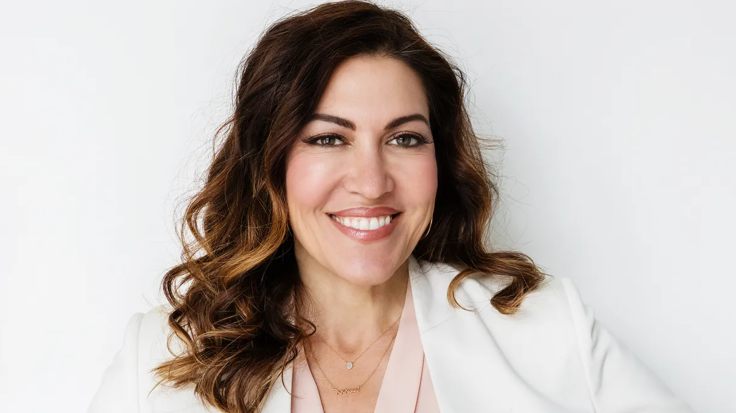
As Black History Month continues, we at The Latin Times have been busy putting the spotlight on Afrolatinidad, an identity that currently accounts for as many as 6 million people in the United States. Part of the discussion has evolved around the importance of representation in the media, and there are very few companies that understand the media better than Nielsen, a global leader in audience measurement and analytics.
So it's fair to say that recent data from the 2023 Attitudes on Nielsen's Representation Study reveals a stark reality: four out of every five Afro Latino individuals feel their identity group is consistently misrepresented in the media.
We recently sat down with Nielsen's Senior VP for Diverse Initiatives and Insights, Stacie de Armas, to talk about the challenges this figure entails for Afro Latinos and the opportunities for media companies, content producers and advertisers when it comes to crafting relevant content for the community.
The following interview has been edited for length and clarity.

Tell us what you do at Nielsen
I'm focused on bringing forward data and insights around diverse communities that don't always have their narratives told when it comes to representation in content, as audiences and how they're presented in advertising. And so my role is to help advertisers better understand the audience so that they can properly invest. I also help media companies and content producers better understand the value of creating content designed to highlight and or deliver relevant messages to the community and ensure that not only our stories are told, but specifically that our data stories are told.
Great, so let's talk about Nielsen's 2023 Representation Study and what it means for Afro Latino representation.
Well, 81% of Afro-Latino people agree with the premise that their identity group is misrepresented in media. It is the highest number by more than 20 percentage points compared to any other group, including Black people, Hispanic and Asian. So there's a significant difference between the community's lived experience and how they're represented and seen in content. So it's important to close that gap.
When you look closer at the numbers, Afro Latino men had 0.1%, on-screen representation in 2023. Afro Latinas were seven times higher at 0.7% but the number is still incredibly low and not reflective of the 6 million strong population.
So, just for perspective, has this reality changed from previous years?
There hasn't been a significant increase in representation like we've seen, for example, with LGBTQ representation, which even though it's still incredibly underrepresented, has seen a bump. We've seen a bump among Black representation in content as well. But we've not seen that with Afro Latinos.
And when you remove Spanish language networks the reality is even bleaker. When you look at English-language media, the share of screen drops to 0.6%. That's important because in many ways it shapes the narratives of how society perceives Afro Latinos. So I will say that how we are perceived in content and in television largely shapes not only how we see ourselves, but how other communities see us. What we're capable of, what our attributes are... A lot of that is shaped by media, for better or worse. And so it's one thing to be misrepresented in media, it's another to be entirely invisible.
So what are some of the consequences of this misrepresentation that Afro Latinos perceive?
Well, something important to point out is that they not only feel underrepresented. They literally are. When we look at representation data in inclusion analytics, Afro Latinos are virtually invisible in content, next to only indigenous people. This has essentially led to the erasure of Afro Latino stories and narratives and representation in Media. We do have some shining stars. Colman Domingo's historic Oscar nomination is a good example. But, you know, how long does it take for us to not just celebrate but have roles and stories where Afro Latinos have the opportunity to be present in those narratives and those storylines?
Are there any other examples of success cases for Afro Latino representation that you can think of?
Well I think about something like Gente-fied, which was an amazing show. There were two seasons. This show was remarkable. It featured a wonderful, diverse storyline featuring the amazing Afro-Latina actress, Julissa Calderon. And because of the timing and Covid, it didn't have the opportunity to be carried on and have the runway that it needed to shine. So I think one of the things that's lacking the most is some patience. These shows are oftentimes held up to the same criteria as shows that have ten times the budget. And we need to give them the opportunity to grow and build momentum in a different way.
And how do brands fit into this exactly? This is a business after all.
Well, 64% of Afro Latinos told us that they expect the brands that they buy and use to support causes that they care about. They want want to engage with brands that value their community. Another 64% said that they will stop buying from brands that devalue the community or their identity group. And part of devaluing is not recognizing. So, you know, as an advertiser or a brand, I don't think you can overlook a 6-million-person potential and the growth of the community. It just doesn't make sense. And remember, it's not just the community. It's the allies and the friends and the family and the lived experience within the community. If you're Latino like me, chances are you have Afro Latinos in your family. There's a huge, opportunity to meet the appetite of not just the Afro Latino audience, but of all audiences that really crave diverse content.
© 2025 Latin Times. All rights reserved. Do not reproduce without permission.





